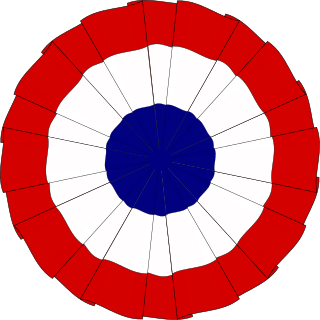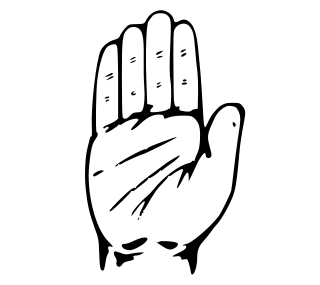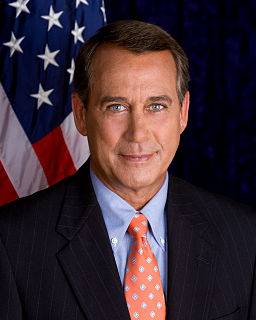Related Research Articles
The politics of Canada function within a framework of parliamentary democracy and a federal system of parliamentary government with strong democratic traditions. Canada is a constitutional monarchy, in which the monarch is head of state. In practice, the executive powers are directed by the Cabinet, a committee of ministers of the Crown responsible to the elected House of Commons of Canada and chosen and headed by the Prime Minister of Canada.

Democracy is a form of government in which the people have the authority to choose their governing legislation. Who people are and how authority is shared among them are core issues for democratic theory, development and constitution. Some cornerstones of these issues are freedom of assembly and speech, inclusiveness and equality, membership, consent, voting, right to life and minority rights.

The Free Democratic Party is a liberal political party in Germany. The FDP is led by Christian Lindner.
The Natural Law Party (NLP) is a transnational party founded in 1992 on "the principles of Transcendental Meditation", the laws of nature, and their application to all levels of government. At its peak, it was active in up to 74 countries; it continues in India and some parts of the United States. The party defines "natural law" as the organizing intelligence which governs the natural universe. The Natural Law Party advocates using the Transcendental Meditation technique and the TM-Sidhi program as tools to enliven natural law and reduce or eliminate problems in society.

The 1996 United States presidential election was the 53rd quadrennial presidential election. It was held on Tuesday, November 5, 1996. Incumbent Democratic President Bill Clinton defeated former Senate Majority Leader Bob Dole, the Republican nominee, and Ross Perot, the Reform Party nominee.

The Democratic-Republican Party, better known at the time under various other names, was an American political party founded by Thomas Jefferson and James Madison in the early 1790s that championed republicanism, political equality, and expansionism. The party became increasingly dominant after the 1800 elections as the opposing Federalist Party collapsed. The Democratic-Republicans later splintered during the 1824 presidential election. One faction of the Democratic-Republicans eventually coalesced into the modern Democratic Party, while the other faction ultimately formed the core of the Whig Party.

The 1992 United States presidential election was the 52nd quadrennial presidential election. It was held on Tuesday, November 3, 1992. Democratic Governor Bill Clinton of Arkansas defeated incumbent Republican President George H. W. Bush, independent businessman Ross Perot of Texas, and a number of minor candidates.

The 1928 United States presidential election was the 36th quadrennial presidential election, held on Tuesday, November 6, 1928. Republican Secretary of Commerce Herbert Hoover defeated the Democratic nominee, Governor Al Smith of New York. Hoover was the last Republican to win a presidential election until 1952.

The 1980 United States presidential election was the 49th quadrennial presidential election. It was held on Tuesday, November 4, 1980. Republican nominee Ronald Reagan defeated incumbent Democrat Jimmy Carter in a landslide victory. Carter was the first incumbent president to lose an election since Carter himself defeated Gerald Ford four years earlier in 1976. Due to the rise of conservatism following Reagan's victory, some historians consider the election to be a political realignment that marked the start of the Reagan Era.

The Electoral College is a body of electors established by the United States Constitution, which forms every four years for the sole purpose of electing the president and vice president of the United States. The Electoral College consists of 538 electors, and an absolute majority of at least 270 electoral votes is required to win the election. According to Article II, Section 1, Clause 2 of the Constitution, each state legislature determines the manner by which its state's electors are chosen. The number of each state's electors is equal to the sum of the state's membership in the Senate and House of Representatives; currently there are 100 senators and 435 representatives. Additionally, the Twenty-third Amendment, ratified in 1961, provides that the district constituting the seat of the federal government is entitled to the number it would have if it were a state, but in no case more than that of the least populous state. U.S. territories are not entitled to any electors.

The Bharatiya Janata Party is the current ruling political party of the Republic of India. It is one of the two major political parties in India, along with the Indian National Congress. As of 2019, it is the country's largest political party in terms of representation in the national parliament and state assemblies and is the world's largest party in terms of primary membership. BJP is a right-wing party, and its policy has historically reflected Hindu nationalist positions. It has close ideological and organisational links to the much older Rashtriya Swayamsevak Sangh (RSS).

The Indian National Congress is a political party in India with widespread roots. Founded in 1885, it was the first modern nationalist movement to emerge in the British Empire in Asia and Africa. From the late 19th century, and especially after 1920, under the leadership of Mahatma Gandhi, Congress became the principal leader of the Indian independence movement. Congress led India to independence from Great Britain, and powerfully influenced other anti-colonial nationalist movements in the British Empire.

Kirklees is a local government district of West Yorkshire, England, governed by Kirklees Council with the status of a metropolitan borough. The largest town and administrative centre of Kirklees is Huddersfield, and the district also includes Batley, Birstall, Cleckheaton, Denby Dale, Dewsbury, Heckmondwike, Holmfirth, Kirkburton, Marsden, Meltham, Mirfield and Slaithwaite. Kirklees had a population of 422,500 in 2011 and is therefore the most populous borough in England that is not a city; it is also the third largest metropolitan district by area behind Doncaster and Leeds.

United Russia is the ruling political party of Russia. United Russia is the largest party in Russia, and as of 2018 it holds 335 of the 450 seats in the State Duma. United Russia members have constituted the majority of State Duma since 2007.

The LDPR — Liberal Democratic Party of Russia, briefly, the LDPR or Liberal Democratic Party, is a socially conservative, nationalist, economically interventionist political party in Russia led by Vladimir Zhirinovsky since its founding in 1989.
An independent voter, often also called an unaffiliated voter in the United States, is a voter who does not align themselves with a political party. An independent is variously defined as a voter who votes for candidates on issues rather than on the basis of a political ideology or partisanship; a voter who does not have long-standing loyalty to, or identification with, a political party; a voter who does not usually vote for the same political party from election to election; or a voter who self-describes as an independent.

The 1962 California gubernatorial election was held on November 6, 1962. The Democratic incumbent, Pat Brown, ran for re-election against former Vice President and 1960 Republican presidential nominee Richard Nixon. In his concession speech, Nixon accused the media of favoring his opponent Brown, stating that it was his "last press conference" and "You won't have Dick Nixon to kick around any more." Six years later, Nixon was elected President of the United States.
The Labour Party is a centre-left political party in the United Kingdom that has been described as an alliance of social democrats, democratic socialists and trade unionists. In all general elections since 1922, Labour has been either the governing party or the Official Opposition. There have been six Labour prime ministers and thirteen ministries.

The 2014 United States House of Representatives elections were held on November 4, 2014, in the middle of President Barack Obama's second term in office. Elections were held for all 435 seats of the House of Representatives, representing the 50 states. Elections were also held for the non-voting delegates from the District of Columbia and four of the five territories. The winners of these elections served in the 114th United States Congress, with seats apportioned among the states based on the 2010 United States Census. The Republicans won 16 seats from Democrats, while three Republican-held seats turned Democratic. The Republicans achieved their largest majority in the House since 1928 due to a sizeable Republican wave. Combined with the Republican gains made in 2010, the total number of Democratic-held House seats lost under Barack Obama's presidency in midterm elections rose to 77 with these elections. This marked the highest number of House seats lost under a two-term president of the same party since Harry S. Truman. With 36.4% of eligible voters voting, the voter turnout was the lowest since 1942.
References
- ↑ Nohlen, D (2005) Elections in the Americas: A data handbook, Volume I, p91 ISBN 978-0-19-928357-6
| This Barbados-related article is a stub. You can help Wikipedia by expanding it. |